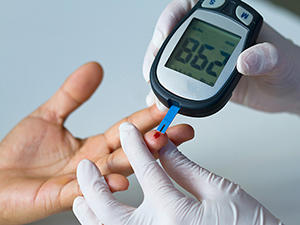When it comes to how often we should be eating every day, there is a lot of conflicting advice. Some say that you have to eat breakfast to kick off the burning of fat stored and that you need to eat a number of small meals to rev up the metabolism.
Breakfast Is The Most Important Meal Of The Day
All the experts agree that you have to eat a healthy breakfast - especially if you want to lose weight.
Observers have noted that those people who are more likely to skip breakfast are also more likely to have problems with their weight.
That is not hard and fast proof, however, just an observation of what could be a coincidence.The truth is that these people tend to live a less healthy lifestyle altogether anyway so are more prone to weight problems.
Those who are more health conscious will make breakfast a fixed part of their routine, along with other healthy behaviors.
The truth is that the body does not physically have to have a meal in the morning in order to get it going.
The simple truth is that you need to be guided by your body - eat if you feel like it but don't force breakfast down if you don't.
Does Eating More Often Boost Your Metabolism?
This is an enduring myth and one that is hard to shake.
There is a grain of truth in this in that there is a small increase in your metabolism when you start to digest your food.
What really makes a big difference, however, is how much you eat - that is what the main factor is when it comes to determining how many calories you'll burn.
There is no difference in your metabolic rate if you eat six small meals or if you eat three as long as the total calorie count is the same. Research has borne this out fat loss and metabolic rate are the same either way.
Grazing To Balance Sugar Levels
A lot of people make the argument that "grazing" helps to prevent imbalances in the levels of sugar in the blood and allows you to thus keep your appetite in check.
It seems to make sense but is not backed by science.
In fact, science has conversely proven that it is those people who eat only three meals a day who benefit the most with lower levels of glucose in the blood.
The high and lows may be more significant but when the averages are meted out throughout the day they come out on top. If you have problems with sugar, this research becomes even more important.
It has also been shown that eating less often leads to better feelings of fullness and fewer hunger pangs.
More Meals A Day Could Increase Your Chances Of Getting Colon Cancer
In some studies, it was observed that eating more meals correlates with a higher risk of developing colon cancer.
Even just eating four meals instead of two increases your risk of contracting the disease by around 90%.
Again, we need to be careful about jumping to conclusions here as this is not definite proof but it is something worth considering.
Skipping The Occasional Meal Can Be Healthy
A trending topic nowadays is the idea that you fast off and on, on a regular basis. Perhaps you skip lunch on certain days or skip all meals for one day a week.
If you consider the conventional approach - this is madness, your body will go into starvation mode and start depleting your muscles. However, research has shown that the body only starts slowing down the metabolic rate after about two or three days.
Further studies in both animal and human trials have shown that this kind of behavior does actually have definite benefits - the body becomes more sensitive to insulin, the levels of glucose and insulin both drop, etc.
In addition, and possibly most importantly, the cells start to mop up toxins and waste in the cells and flush it out.
The Answer?
Grazing is not such a good idea - after all, we are not cows! It can, in fact, do more harm than good.
Focus instead on getting in the right nutrients. If you have difficulty, nutritional supplements can help.
It is best to listen to your own body - if you are hungry eat wisely, if you are not, don't.












